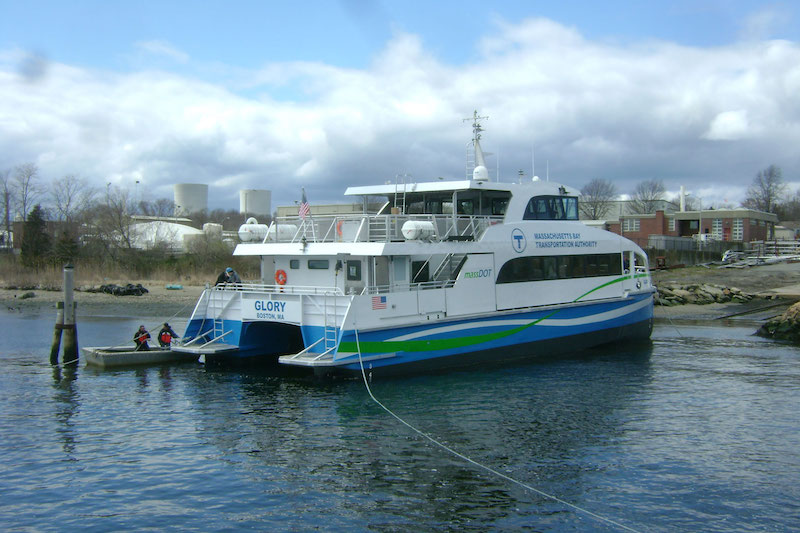Gladding-Hearn Shipbuilding has delivered the 89'x28' catamaran ferry Glory to the Massachusetts Bay Transportation Authority (MPTA). It's the second 89' aluminum cat built by Gladding-Hearn for MBTA, following sistership Champion last year. Both vessels have drafts of 4'2".
With seating for 110 passengers inside and a total capacity of 150 passengers, the Glory is U.S. Coast Guard-certified Subchapter T and meets a range of performance and function criteria.
Designed by Incat Crowther, the vessel's design is optimized for bow loading, with double-width gates and doors. The bow design integrates with existing shore-based infrastructure. The wheelhouse is designed to meet strict visibility requirements, allowing the captain to clearly see the foredeck.
Among the challenges of a modern commuter operation is the increasing demand for passenger amenities. The Champion and Glory are fully compliant with ADA (including four wheelchair spaces and accessible bathroom), concession stand, luggage racks, bicycle storage for 10, a ticket counter, and WiFi.
Just like the Champion, Glory’s entire superstructure is isolated by resilient mounts, to reduce noise and vibration in the cabin, allowing the vessel to exceed the contractual requirements.
Glory is powered by a pair of Caterpillar C32 Acert engines, 1,450-hp each at 2,100 rpm, driving HamiltonJet HM571 waterjets, for a service speed of 26 knots and a top speed of 30 knots. Ship’s service power comes from twin John Deere-powered Marathon gensets, sparking 47kW of electricity each.
Capacities include 1,600 gals. of fuel and 200 gals. fresh water. The ferry carries a crew of three.




